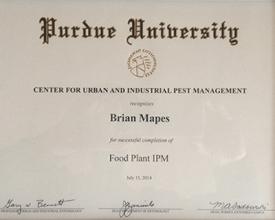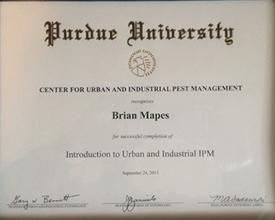Rodent

How We Help
- Mice and Rats are fairly easy to track down, as they nest near a viable food source and often leave trails.
- Extermination of rodents can be done in various chemical or non-chemical solutions, all of which are discussed with the client ahead of time.
- Once the rodents have been tamed, we make sure that any traces of them are eliminated, and that they are kept away from your property.
- As with any of our jobs, we educate our clients on rodent control to be extra sure that rodents are never a problem again.
Mice and rats have been trying to share our food and shelter for years now, and we don’t have to put up with it any longer with our Denver rodent control and removal service. The loss of food worldwide to rodents is incredibly high, as experts estimate that rats and mice destroy enough food each year to feed 200 MILLION people.
Technology is always improving in the pest control world, and for a commercial/residential pest operator like ourselves, we have so many ways to keep pests at bay. Some controls we use are:
Non-Chemical
- trapping
- exclusion (sealing up the cracks)
- sanitation
- repellents
Chemical
- poison baits
- tracking powder
- fumigants
Reasons For Professional Rodent Control
Some people actually have an allergic reaction to mice. A study was done in 1999 depicting inner-city children who have been near mice react with asthma and allergic symptoms. On top of being a source for allergies, there are so many other reasons to remove rodents, such as hantavirus, plague, typhus, pox, salmonella, campylobacter, and rat-bite fever, to name a few.
We specialize in rodent control and removal services in Denver. Our team of experts is trained to effectively identify and eliminate rodent infestations, ensuring that your home is free from these unwanted guests.
Mice will set up their nests near a food source, and under average conditions, the territories range from 10 to 30 feet. Mice are ‘nibblers’, and they will travel 30 or more times a night for short visits to several food sources. This knowledge gives us an excellent advantage in capturing them and removing all the inhabitants.
Mice vs. Rats
The difference between mice to rats is relatively easy to see. Mice have small heads and feet, and rats are, in comparison, quite larger. Mice have a year-round breeding season with eight litters of 4-7 each year. After just 30 days, the babies are weaned from their mothers. On the other hand, rats have a peak season in spring and fall with a few fewer litters and sometimes more babies.
The gnawing damage that rodents can do to a building is something you don’t want to see, which can range from walls to floors and electrical. You name it, and they have chewed through it to get inside of buildings.
Each location is different, so don’t let rodents take over your home and disrupt your peace of mind. Contact Side by Side Pest Control a call at (720) 588-5484 today for professional rodent control and removal services in Denver, CO. We’ll work side-by-side with you to ensure a pest-free environment.







